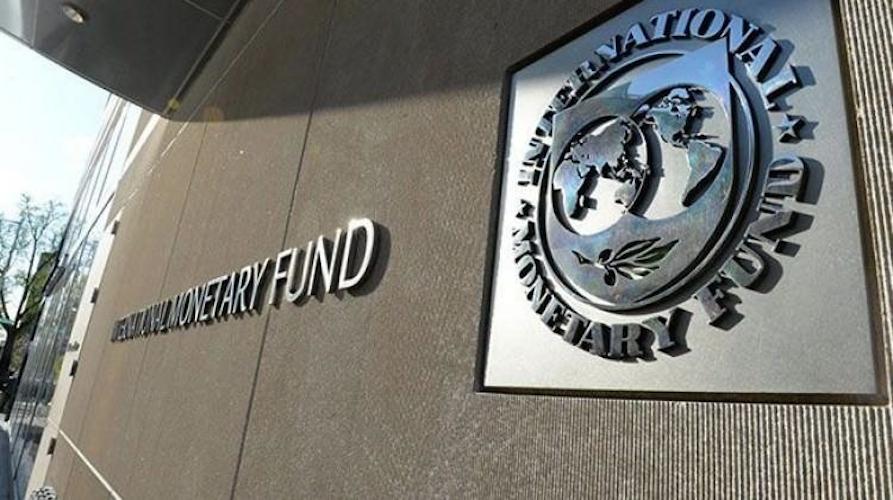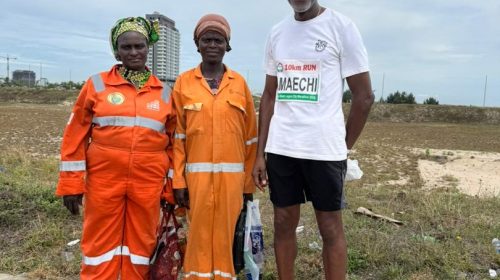IMF Urges Nigeria To Remove Fuel Subsidy … Says $5.2Trn Wasted in Four Yrs

By Ngozi Onyeakusi—Given the low revenue mobilisation that existed in Nigeria in terms of tax to Gross Domestic Product, the Managing Director, International Monetary Fund, Christine Lagarde, has said it is time for the Federal Government of Nigeria to remove fuel subsidy.
Lagarde who gave the admonition at the on-going joint annual spring meetings with the World Bank in Washington DC said Nigeria had wasted over $5.2Trn in Four years.
Accordingly, IMF had in its 2019 Article IV Consultation on Nigeria noted that phasing out implicit fuel subsidies while strengthening social safety nets to mitigate the impact on the most vulnerable would help reduce the poverty gap and free up additional fiscal space in the country.
When reminded that the removal of subsidy was a sensitive issue to Nigerians, many of who live below the poverty line, Lagarde insisted that the right thing to do was for Nigeria to embark on total fuel subsidy removal.
She said, “I will give you the general principle. For various reasons and as a general principle, we believe that removing fossil fuel subsidies is the right way to go. If you look at our numbers from 2015, it is no less than about $5.2tn that is spent on fuel subsidies and the consequences thereof. And the Fiscal Affairs Department has actually identified how much would have been saved fiscally but also in terms of human lives, if there had been the right price on carbon emission as of 2015. Numbers are quite staggering.
“I would add as a footnote as far as Nigeria is concerned that, with the low revenue mobilisation that exists in the country in terms of tax to GDP, Nigeria is amongst the lowest. A real effort has to be done in order to maintain a good public finance situation for the country. And in order to direct investment towards health, education, and infrastructure.”
The IMF boss added, “If that was to happen, then there would be more public spending available to build hospitals, to build roads, to build schools, and to support education and health for the people.
“Now, how this is done is the more complicated path because there has to be a social protection safety net that is in place, so that the most exposed in the population do not take the brunt of the removal of subsidies principle. So that is the position we take.”
Between January and November 2018, the Nigerian National Petroleum Corporation spent a total of N623.16bn on fuel subsidy under its under-recovery arrangement.
Although the corporation insisted that it was not paying subsidy on petrol as it had no parliamentary approval for such, it revealed through the document presented to Federation Account Allocation Committee in December 2018, that what the NNPC had incurred as under-recovery in 11 months was N623.16bn.
Lagarde lamented that 70 per cent of the global economy was decelerating and as such, the Bretton Wood institution had cut its forecast across the board.
She said, “But just like nature, the global economy is also currently quite uncertain. As I said a year ago, we were talking about synchronised growth. And 75 per cent of the global economy was going through that phase. As you heard a couple of days ago, we are now talking about a synchronised slowdown by 70 per cent of the global economy.
“So, our forecast for growth this year is 3.3 per cent, going back up, we hope in 2020 based on our forecast, to 3.6 per cent. But we contend that we are at a delicate moment and this expected rebound from 3.3 per cent in 2019 to 3.6 per cent in 2020 is precarious and subject to downside risks, ranging from unresolved trade tensions, yet high debt in some sectors and countries, both public and corporate, to the risk of weaker than expected growth in some stressed economies. And, of course, the consequences of whatever Brexit will be.”
In terms of policy recommendations, Lagarde suggested multiple policies that were country-specific, saying that there was no one size fits all.
“But we certainly would recommend two key principles. One is, do no harm. Second, do the right thing. So, do no harm. The key is to avoid the wrong policies, and this is especially the case for trade,” she added.
Earlier, the World Bank Group President, David Malpass, gave the assurance that the bank would help Africa tackle illicit fund flows because such funds ‘suck resources away from poor people, and from the ability of a country to really grow and develop.’
He added, “The bank has not nearly enough but expanding strength in helping people think about how to best keep track of financial flows and make sure that they are legitimate financial flows.
“This takes the form of technical assistance; it takes the form of close cooperation with the financial officials in the country, and it’s something countries, I think, are rising to the challenge, and trying to make it work better. But clearly, more can always be done.”







Leave a Reply